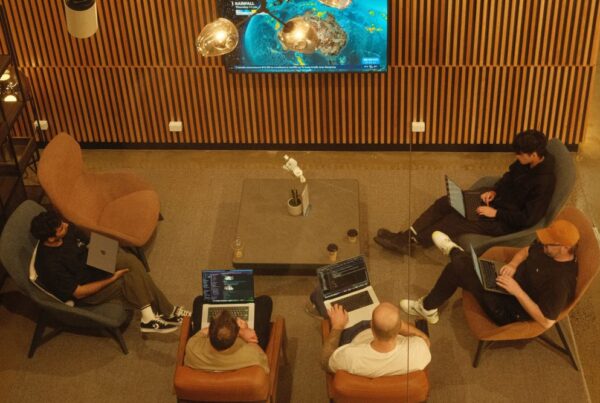
Designing, producing, and running events can be incredibly fulfilling. It’s a powerful experience to see your vision come to life, with real people engaging in the event you’ve carefully crafted. The thrill is undeniable, but it also requires a unique skill set to create an event that leaves a lasting impression on your audience and clients. To ensure your event is memorable, here are some key considerations that United Co. has already listed, including often-overlooked details that can make all the difference in delivering an exceptional experience.
Common Mistakes to Avoid When Planning a Business Event
When planning a business event, it’s crucial to be aware of common pitfalls that can derail your efforts. Being proactive and thorough in your planning process will help ensure your event meets its objectives and leaves a positive impression on attendees.
1. Not Setting Aside Enough Lead Time
One of the most common mistakes in event planning is underestimating the time required to organize and execute an event successfully. Without adequate lead time, crucial aspects such as venue booking, marketing, and vendor coordination can suffer. Rushing through the planning process increases the risk of errors and can lead to a less polished event. To avoid this, start planning as early as possible, setting clear timelines for each task to ensure everything is completed smoothly.
2. Not Checking for Competing Events
Planning your event without considering other events happening simultaneously can have a significant impact on attendance and overall success. If your target audience is split between your event and another, it can dilute your efforts and reduce the effectiveness of your event. To avoid this, research the event calendar in your industry or locality, and choose a date that doesn’t conflict with other major events. This ensures your event stands out and attracts the maximum number of attendees.
3. Not Having a ‘Plan B’
Even with meticulous planning, unexpected challenges can arise, such as technical difficulties, weather issues, or last-minute cancellations. Not having a contingency plan can leave you scrambling to fix problems on the fly, which can disrupt the event and negatively impact the experience for your attendees. Always develop a ‘Plan-B’ for key aspects of your event, such as alternative venues, backup technology, and substitute speakers. This proactive approach ensures you’re prepared to handle any curveballs.
4. Not Confirming with All Partners and Stakeholders
Effective communication with all partners and stakeholders is crucial to the success of your event. Failing to confirm details, such as schedules, responsibilities, and expectations, can lead to misunderstandings and last-minute changes that disrupt the event flow. Regular check-ins and confirmations with everyone involved ensure that all parties are aligned and prepared. This reduces the likelihood of surprises and helps the event run smoothly from start to finish.
Read More About 17 Ideas To Attract More People To Your Corporate Events
7 Things to Do to Plan Your Business Event
Planning a successful business event requires careful consideration and strategic planning. Start by clearly defining your event’s purpose and objectives. Here are 7 things you should do when it comes to planning your business event.
1. Understand your event’s goals and objectives clearly
- What is your event’s purpose? What outcome and impact would you like to have?
- How many people do you want to attend?
- How much profit do you want to make?
- Other than attendance, what else would make your event a ‘success?’
2. Have a clear and flexible budget
Put together a rough budget to begin with so that you can understand all of your expenses, and source of income (ticket sales, sponsorship) and use this budget to be able to have constructive conversations with prospective partners.
Some things to consider in your budget might be:
- Venue hire
- Marketing and publicity
- Hiring of equipment
- Decorations
- Entertainers and speakers
- Giveaway or door prize
- Catering and refreshments
- Transport
- Phone bills, postage, and other admin
- Insurances
- First aid equipment and volunteers
- Fees for licenses and permissions
Read More About How to Drive Business Growth Through Corporate Events
3. Understand and consider the experience of your attendees
What makes an event remarkable is how your participants feel during the experience. Do they feel connected? Do they feel inspired? Do they feel safe? Do they feel energized?
Consider how you would like your attendees to feel and what type of comments you’d like them to share with their friends, family, and colleagues.
4. Remember to align all your partners and team
There is nothing more damaging to an event (or any endeavor for that matter) than misaligned partners. You might have the purest of intentions and have understood and designed the experience around your core values and purpose, but if your partners and volunteers are not on the same page, then they could create a big sense of incongruence for your attendees.
Make sure all your partners understand the purpose of the event, the values you’d like to withhold, and the experience you’re looking to create for your attendees.
5. Have a very clear master sheet printed that is easy to read
On the day of an event you want to make it as easy as possible for you, and everyone on your team to understand what needs to happen, and when. Printing a very clear master sheet with timings, activities, and responsibilities is very important.
People like events that run smoothly are pleasant to be a part of and meet their expectations. So creating a master sheet for yourself will ensure you can do this.
6. Pay attention to the intangibles in the room
The lighting, the smell, the design of the space – it all has a profound effect on human behavior and the way the event feels for your attendees. After you’ve considered how you’d like your attendees to feel, consider how the space should be designed to have them feel this way.
7. Look after yourself and the team
Running events can be a very stressful job, but it doesn’t necessarily have to be. With the right lead time, support, partnerships, systems, and clarity, you too could enjoy the event you are producing. So set a goal to be able to enjoy your event and also, to be able to give everyone you interact with on the day a pleasant experience. This might mean working a little harder in the weeks leading up, but enjoying the day yourself will have a great effect on how your team and therefore your attendees experience the event too.
Read More About 9 Tips To Organise A Successful Networking Event
Planning a successful business event requires meticulous attention to detail and the foresight to anticipate potential challenges. By avoiding common mistakes—such as underestimating lead time, failing to check for competing events, neglecting to have a contingency plan, and not confirming details with all stakeholders—you can ensure that your event runs smoothly and achieves its intended goals. Remember, the key to a memorable and impactful event lies in thorough preparation and proactive problem-solving.
Ready to take your business event planning to the next level? Avoid these common pitfalls and set your event up for success with the expert support of United Co. Our versatile event space in Fitzroy, Melbourne, is perfect for hosting everything from intimate gatherings to large corporate events. Explore our state-of-the-art facilities, tailored event packages, and experienced team ready to help you create a memorable and seamless experience. Contact us today to book a tour or learn more about how United Co. can elevate your next event!




